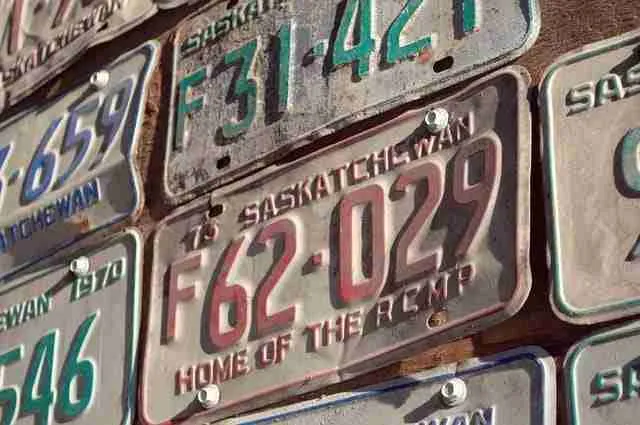
How Often Do You Have to Register Your Vehicle?
It’s a rainy spring afternoon, and I’m driving home from work. As I pull into my driveway, I notice a bright yellow envelope stuck under my windshield. What is this? I wonder.
I step out of the car and retrieve the envelope. It’s from the Department of Motor Vehicles. I open it up to find a notice that my vehicle registration is expiring in two weeks. Oh no!
Vehicle Registration: What It Is and Why It Matters
Vehicle registration is the process of registering your car, truck, motorcycle, or other motor vehicle with the government. It’s a way for the government to keep track of who owns each vehicle and to ensure that all vehicles are insured and meet safety standards.
In most states, you are required to register your vehicle every year. The process usually involves paying a fee, providing proof of insurance, and getting a new license plate. Fees vary state by state, so it’s important to check with your local DMV for the most up-to-date information.
If you fail to register your vehicle, you may be subject to fines or other penalties. In some states, your vehicle may even be impounded.
How Often Do You Have to Register Your Vehicle?
The frequency of vehicle registration varies by state. In most states, you are required to register your vehicle every year. However, some states have different requirements. In states like California, the registration period is typically two years.
In states that require annual registration, you will receive a renewal notice in the mail a few weeks before your registration expires. If you don’t receive a renewal notice, you can contact your local DMV to get one. Here’s a table summarizing the vehicle registration periods for different states:
| State | Registration Period |
|---|---|
| California | 2 years |
| Florida | 1 year |
| Illinois | 1 year |
| New York | 1 year |
| Texas | 1 year |
How to Renew Your Vehicle Registration
Renewing your vehicle registration is a relatively simple process. You can usually do it online, by mail, or in person at your local DMV. The process may vary depending on your state, but here are the general steps:
- Gather the necessary documents. You will need your vehicle registration card, proof of insurance, and payment for the registration fee.
- Complete the registration form. The form will ask for information such as your name, address, and vehicle information.
- Submit the form and payment. You can submit the form and payment online, by mail, or in person at your local DMV.
- Receive your new registration card. You will receive your new registration card in the mail within a few weeks.
Tips for Keeping Your Vehicle Registration Up to Date
Here are a few tips for keeping your vehicle registration up to date:
- Set a reminder. Set a reminder in your calendar or on your phone to renew your vehicle registration a few weeks before it expires.
- Use the online renewal service. If your state offers online renewal, take advantage of it. It’s a quick and easy way to renew your registration.
- Keep track of your renewal notice. If you receive a renewal notice in the mail, keep track of it so you don’t forget to renew your registration.
- Be aware of the penalties for late renewal. If you fail to renew your vehicle registration, you may be subject to fines or other penalties. In some states, your vehicle may even be impounded.
Frequently Asked Questions About Vehicle Registration
Q: How much does it cost to register my vehicle?
A: The cost of vehicle registration varies by state. Contact your local DMV for the most up-to-date information.
Q: What do I need to renew my vehicle registration?
A: You will need your vehicle registration card, proof of insurance, and payment for the registration fee.
Q: Can I renew my vehicle registration online?
A: Yes, many states offer online vehicle registration renewal. Check with your local DMV to see if your state offers this service.
Q: What are the penalties for late vehicle registration renewal?
A: The penalties for late vehicle registration renewal vary by state. In most states, you will be subject to fines or other penalties. In some states, your vehicle may even be impounded.
Conclusion
Vehicle registration is an important part of owning a car. It’s a way for the government to keep track of who owns each vehicle and to ensure that all vehicles are insured and meet safety standards. If you fail to register your vehicle, you may be subject to fines or other penalties. Keep your vehicle registration up to date to avoid any problems.
Do you have any questions about vehicle registration? Leave a comment and let us know.

Image: www.carcareportal.com

Image: freeforms.com
Vehicle Permission Letter Online: Complete with ease | airSlate SignNow In Person. To register your vehicle in person, take your registration renewal notice and proof of current liability insurance to your county tax office or an approved substation. If you do not have a renewal notice, you can renew your registration using one of the following: License Plate Number. Vehicle Identification Number.